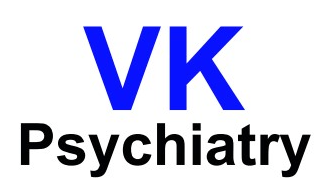Treatment for
Eating Disorders
Treatment for
Eating Disorders
There is no one cause for eating disorders. Biologic, social, and environmental factors all pay a role in the cause and treatment of these conditions. They commonly occur along side with other mental illnesses.
There is Hope.
Get Started
Get Started
Drop us a line and we’ll get back to you!
Freedom From:
Freedom From:
Anorexia
Anorexia
Bulimia
Bulimia
Over-Eating
Over-Eating
Freedom from Overeating - Lose Weight Fast
This may seem like an excuse, but addiction to food is a real disorder and in addition to causing uncontrollable weight gain and weight related health issues such as diabetes, high cholesterol, and heart disease; having an addiction to food could be a mask for a greater underlying issue. Many people who struggle to lose weight and overeat also suffer from depression, anxiety, and other mental disorders. When diet and exercise are not enough, medical intervention maybe needed. Overeating is a sign of needing to have control over something, and talking to a professional could help.
Medical help should be sought out immediately as these can greatly affect ones health.
Eating Disorders By The Numbers!
- About 50% of all women are unhappy with their body
- Eating disorders also affect the male population with those suffering from 8% Anorexia, 15% Bulimia, and 20% Binge Eating
- Binge eating is the most common disorder and affects 1-2 Million Americans
- 97% of people hospitalized for eating disorders had at least one co-occurring mental health disorder
- 94% suffered from mood disorders like major depression
- 1/3 of people with binge eating disorder are also diagnosed with major depression
- 69% of patients with anorexia nervosa also have obsessive compulsive disorder
- 81% of people with bulimia nervosa also have an anxiety disorder
"Eating Disorder Fact."
More than 30 Million Americans each year suffer from an eating disorder. Up to 80% of patients who receive and complete eating disorder treatment will recover or improve significantly.
Anorexia Nervosa
- Extremely restricted eating and/or intensive and excessive exercise
- Extreme thinness (emaciation)
- A relentless pursuit of thinness and unwillingness to maintain a normal or healthy weight
- Intense fear of gaining weight
- Distorted body or self-image that is heavily influenced by perceptions of body weight and shape
- Denial of the seriousness of low body weight
- Frequently dieting, possibly without weight loss
- Dramatic restriction of types or amount of food eaten
- Lack of appetite or interest in food
- Dramatic weight loss or gain
- Upset stomach, abdominal pain, or other gastrointestinal issues with no other known cause
- Limited range of preferred foods that becomes even more limited over time (“picky eating” that gets progressively worse)
Women are not alone in suffering from anorexia. 1/3 of anorexic patients are men.
If you or someone you know is exhibiting signs of an eating disorder, there is hope.
Why Intervention- Matters
Why Intervention- Matters
Recovery of an Eating Disorder is Possible. Get Treatment Today!
Challenges with food isn't exclusive to overeating. Starving oneself, through anorexia or forcing oneself to throw up after eating through bulimia, even over-exercising to the point you are burning more calories by twice as much as you take in, could be used as a way to control something in one’s life when they feel out of control and could be a warning sign for a much greater mental disorder. If you or someone you love is showing signs of food addiction or food avoidance and purging, there is hope. Medical help should be sought out immediately as these can greatly affect ones health.
Bulimia - Binging & Purging
Bulimia is defined as an emotional disorder involving distortion of body image and an obsessive desire to lose weight, in which bouts of extreme overeating are followed by depression and self-induced vomiting, purging, or fasting.
Signs and Symptoms of Bulimia
- Eating unusually large amounts of food in a short amount of time, for example, within two hours
- Eating rapidly during binge episodes
- Eating even when full or not hungry
- Eating until uncomfortably full
- Eating alone or in secret to avoid embarrassment
- Feeling distressed, ashamed, or guilty about eating
Eating disorders can lead to tooth decay, electrolyte imbalance and irregular heartbeats, gastric or esophageal rupture, and death.
If you or someone you know is showing signs of an eating disorder, there is Hope.

